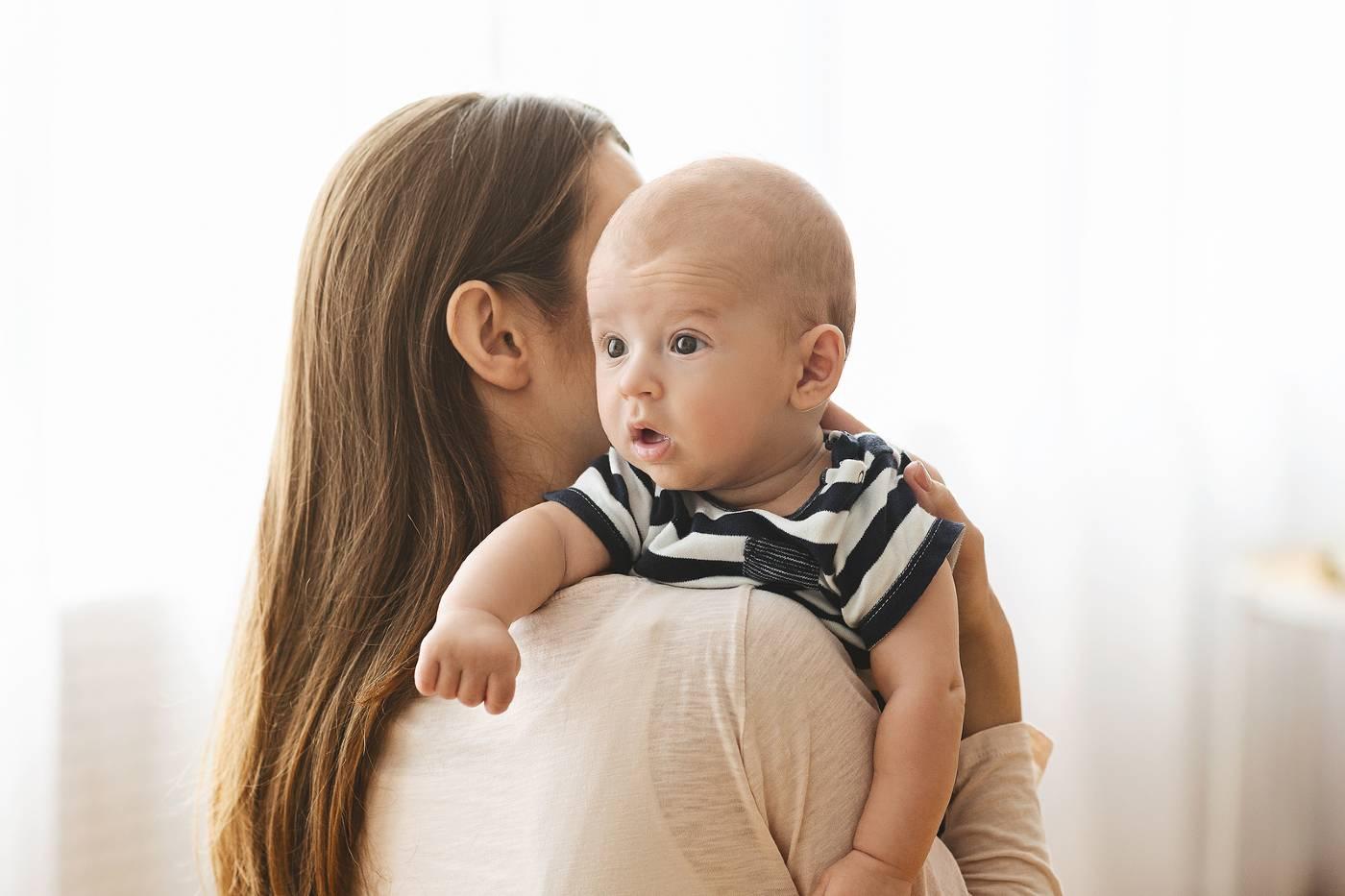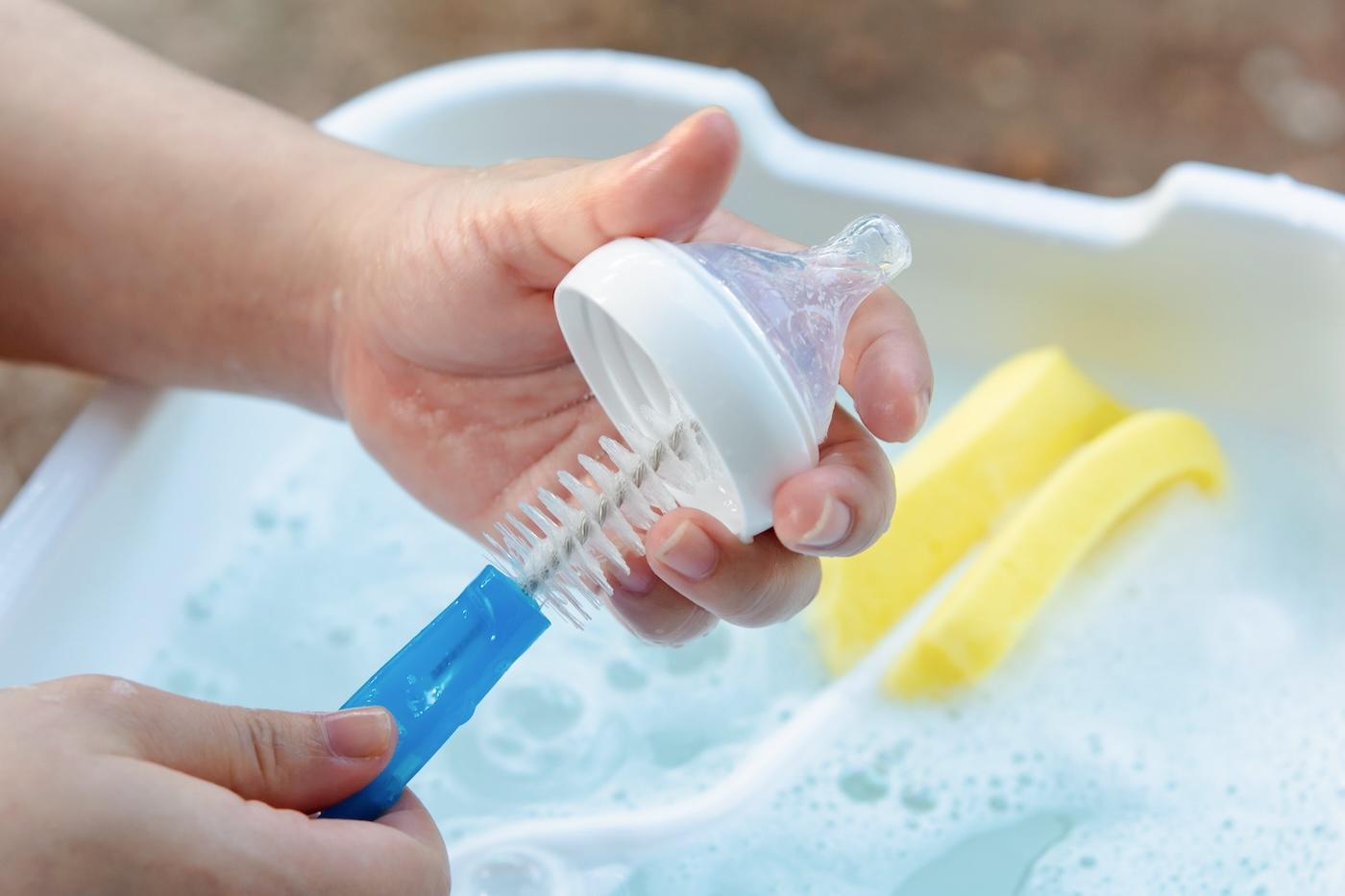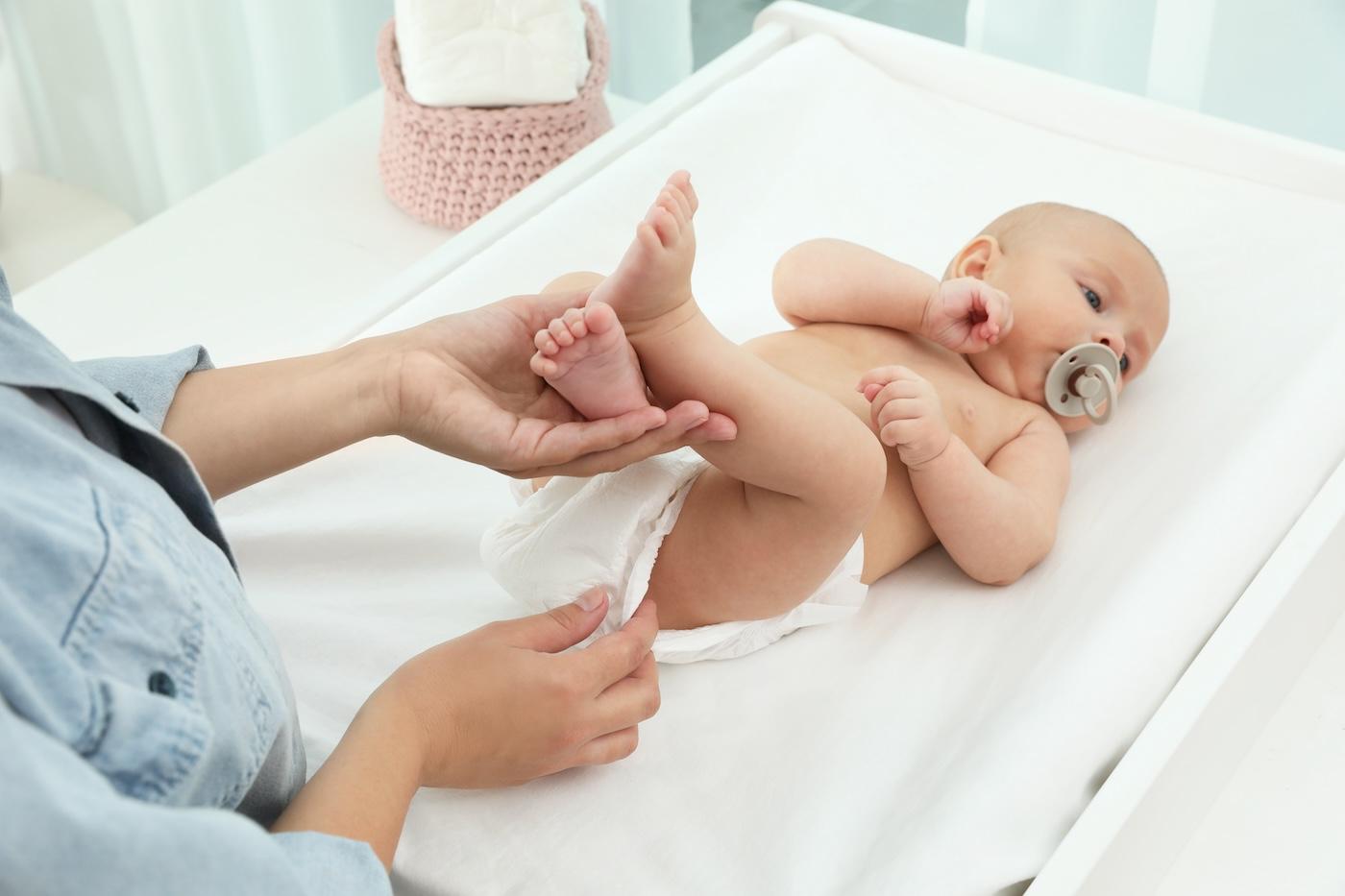BABY
What’s the Deal With Newborn Hiccups?
Don’t scare the hiccups out of your baby! Instead, learn why they’re hiccupping in the first place—plus, how to cure and prevent future hiccups.

Written by
Holly Pevzner

If you suck down a glass of wine or a seltzer too fast, you may wind up with an annoying case of hiccups. They’re a nuisance, for sure, but really nothing to worry about. But when your tiny baby starts to hiccup, it can be a little scary. You may wonder if newborn hiccups are dangerous. And since it’s unlikely that your bub has raided your LaCroix stash or popped open a pinot, you may ask yourself why babies get hiccups in the first place. Before you worry—or attempt to scare the hiccups out of your baby (don’t do that!)— learn all about newborn hiccups, including why babies get hiccups and how to get rid of them quick!
Why do newborns get hiccups?
Essentially, hiccups are a reflex, but unlike the other common reflexes like sneezing or coughing, for a long time there didn’t seem to be any advantage for hiccupping…until recently! Research in the journal Clinical Neurophysiology found that every time a newborn hiccupped, they experienced a pronounced response in their brain’s cortex. Experts speculate that this hiccup-induced brain activity may help newborns learn how to regulate their breathing.
Hiccups are common in newborns and infants, with premature babies being especially prone to them. In fact, preemies spend roughly 1% of their day hiccupping! Normally, your baby draws air into their lungs while their diaphragm contracts. When your baby pushes the air out, their diaphragm relaxes. The whole in-and-out, retract-and-expand process has a distinct and controlled pace. But when your baby’s diaphragm involuntarily contracts, the rhythm gets disrupted, which causes their wee vocal cords to suddenly close and produce a hiccup.
These hiccup-causing spasms in newborns are usually related to your baby eating too fast or too much. Their little distended bellies wind up touching their diaphragm, which sets off the spasm. Ingesting air while bottle-feeding or breastfeeding can also spur a spasm.
How long do baby hiccups last?
Babies might get hiccups several times a day! The good news is, usually a bout of hiccups is fairly mild and lasts for approximately 8 minutes, according to researchers from the University College London. But even if your little one is hiccupping for 10 minutes or more, you can take heart knowing that hiccups in newborns are rarely cause for concern.
Are newborn hiccups something to worry about?
More often than not, newborn hiccups are nothing to worry about. However, if your little one’s hiccups are accompanied by other symptoms, like frequently spitting up, it’s a good idea to reach out to your baby’s healthcare provider. Your pediatrician can help determine if your newborn is dealing with gastroesophageal reflux (GERD), which causes stomach acid to back up into your baby’s esophagus.
Here are other common symptoms of reflux in infants:
- Coughing
- Wet burps
- Wheezing
- Frequently spitting up
- Irritability and crying after eating
- Arching their back, especially during or after a feeding
- Failure to gain weight
Learn more about reflux from Dr. Harvey Karp, the bestselling author of The Happiest Baby on the Block.
How to Cure Baby Hiccups
While hiccups go away on their own, if you’d like try to cut your infant’s hiccup chorus short, consider the following baby hiccup cures:
- Burp your baby. Experts note that burping your baby is the best way to get rid of hiccups. Pediatrician Dr. Harvey Karp suggests laying your baby over your arm or sitting them on your lap facing away from you and patting their back “as strong as a tom-tom drum” for a minute or two. (If your baby is on your lap, make sure to place the palm of your hand against your baby’s chest and support their chin and jaw.)
- Change your bub’s feeding position. If your baby is hiccupping their way through a feed, place them in a more upright position so they’ll take in less air while nursing or bottle-feeding.
- Offer the paci. The sucking motion that goes hand-in-hand with enjoying a pacifier can help relax the diaphragm enough to stop your baby’s hiccups.
- Rubbing your baby’s back. Doing this while rocking them can help relax their diaphragm and stop the hiccup-causing spasms.
Hiccup Remedies to Avoid in Babies
Hiccup cures for grownups are often not safe for babies! If your little one is hiccupping…
- Do not give your infant water to drink.
- Do not hold your baby’s breath.
- Do not have them breathe into a paper bag.
- Do not try to startle the hiccups away.
- Do not press on their eyeballs.
- Do not push on their fontanel.
- Do not pull their tongue.
How to Prevent Baby Hiccups
The best cure for baby hiccups is avoiding them in the first place! Here are some strategies for preventing newborn hiccups:
- Try paced bottle feeding. Unlike traditional bottle feeding where your baby reclines as milk streams into their mouth, paced bottle feeding has you position your bub more upright. This slows milk flow and encourages your little one to take breaks, which helps to side-step the overeating that can lead to hiccups. (Learn all about paced bottle feeding.)
- Burp after 2 to 3 ounces. If you’re nursing, burp when switching breasts.
- Hold the bottle this way. Make sure you hold your baby’s bottle so that the breastmilk or formula fills the nipple and there’s no air in there.
- Check your baby’s latch. If your baby’s mouth is filled with your breast, their lips turn outward like little fish lips, and you can’t see your areola, those are good signs that your baby’s latch will keep the hiccup-inducing air out.
- Pause before laying your baby down. If your bub is plagued with hiccups, consider holding them upright for 15 or 20 minutes post-feed to help stave off hiccups.
More Newborn Need-to-Knows:
- Required Reading! Newborn Sleep Tips From Dr. Harvey Karp
- Baby Grunting in Sleep and Other Sleep Sounds, Explained
- How to Use the 5 S’s for Soothing Newborns
- A Sleep Schedule for Your Baby’s First Year
- How to Dress a Newborn
***
REFERENCES- Hiccups: A new explanation for the mysterious reflex. Bioessays. June 2012
- Event-related potentials following contraction of respiratory muscles in pre-term and full-term infants. Clinical Neurophysiology. December 2019
- OSF Healthcare: Child hiccups are seldom cause for alarm
- The Nemours Foundation, KidsHealth: Gastroesophageal Reflux (GER)
- Cleveland Clinic: Here’s What to Do When Your Baby Has the Hiccups
Disclaimer: The information on our site is NOT medical advice for any specific person or condition. It is only meant as general information. If you have any medical questions and concerns about your child or yourself, please contact your health provider.
SHARE THIS ARTICLE
MOST LOVED
Sleepytime Sidekicks
More on Baby
About Holly Pevzner
Holly Pevzner is Happiest Baby’s Staff Writer. She specializes in creating parenting, pregnancy, health, nutrition, and family travel content. Her work—including essays, columns, reported features, and more—has appeared in outlets such as EatingWell, Family Circle, Parents, Real Simple, and The Bump. Before becoming a full-time writer, Holly held senior staff positions at Prevention, Fitness, and Self magazines, covering medical health and psychology. She was also a contributing editor at Scholastic Parent & Child magazine and a regular kids-health columnist for Prevention and First For Women magazines. Holly lives in Los Angeles with her husband, two boys, and terrier mix.












